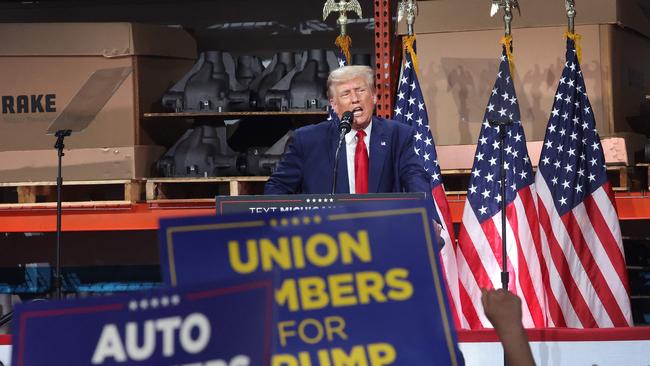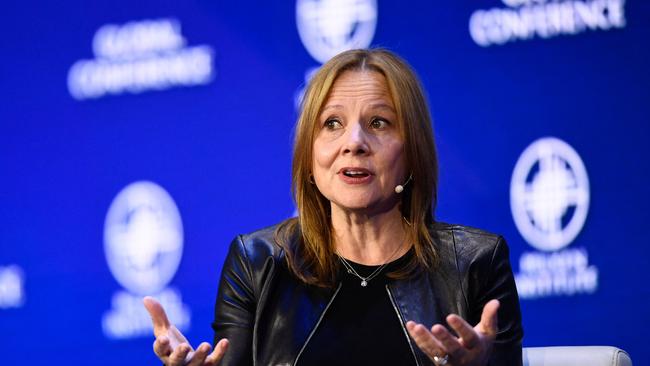Trump’s new tariffs spark auto industry backlash
Trump’s bombshell tariffs on auto imports have sparked industry-wide panic and are set to have severe consequences.

President Donald Trump’s latest trade bombshell will see huge new tariffs on goods from Canada, Mexico and China.
Trump ordered a 25 per cent tax on most imports from Mexico and Canada, plus hike taxes on Chinese goods by another 10 per cent.
The tariffs will take effect from 12:01am on Tuesday, targeting tens of billions of dollars’ worth of vehicles, engines, transmission and other essential components that cross US borders every week.
United States trade groups, unions and industry leaders are warning that the outcome could be catastrophic with severe consequences for US manufacturing, rising consumer prices and economic disruption.
National Association of Manufacturers President and chief executive officer Jay Timmons told Industry Week that a rise in tariff on Canada and Mexico is a threat and will “up-end the very supply chains that have made US manufacturing more competitive globally”
“The ripple effects will be severe, particularly for small and medium-sized manufacturers that lack the flexibility and capital to rapidly find alternative suppliers or absorb skyrocketing energy costs. These businesses — employing millions of American workers — will face significant disruptions.” he said.

MORE: Donald Trump sets his sights on Electric Vehicles
Almost all major automakers will feel the impact, but General Motors, the largest US car manufacturer, will likely be hit the hardest.
GM produces more vehicles in Mexico than any other automaker, over 842,00 in 2024.
Many of these vehicles are top-selling models in the US market, including the Chevrolet Equinox and Blazer SUVs, as well as the Chevrolet Silverado and GMC Sierra pick-up trucks.
Of the more than one million Silverados and Sierras built last year nearly half were assembled in Canadian and Mexican plants.

MORE: Trump’s comeback may be the end of EVs
Anderson Economic Group chief executive Patrick Anderson estimated that the tariffs could add $10,000 or more to the price of trucks and other large vehicles imported from Canada and Mexico.
“Tariffs are a very, very big threat to manufacturers and to auto manufacturing states,” he said.
General Motors chief executive officer Mary Barra addressed the issues during a recent earnings call.
Barra said GM has production capacity in the US that could help mitigate the impact but warned that a trade war would be damaging for the industry.

MORE: Tesla, Musk face $3.2b blow as Trump targets EV subsidies
Former GM executive Warren Browne predicted that tariff-induced supply chain shifts won’t happen overnight.
“History has shown that tariff-induced supply chain changes take time to produce results. The 1981 Voluntary Export Restraint program lasted more than 10 years — and during that time, Japanese manufacturers installed significant capacity into the North American market. It didn’t happen overnight,” he said.
Other automakers, including Stellantis, Toyota and Honda, are likely to be impacted as they produce roughly 40 per cent of their North American vehicles outside the US.
Linamar executive chairwoman Linda Hasenfratz said the industry will also struggle to absorb the costs or quickly move production elsewhere.
“Auto parts are highly engineered products requiring months or years to tool up, validate and test before being built into a vehicle. They simply can’t be substituted overnight,” she said.
Originally published as Trump’s new tariffs spark auto industry backlash




